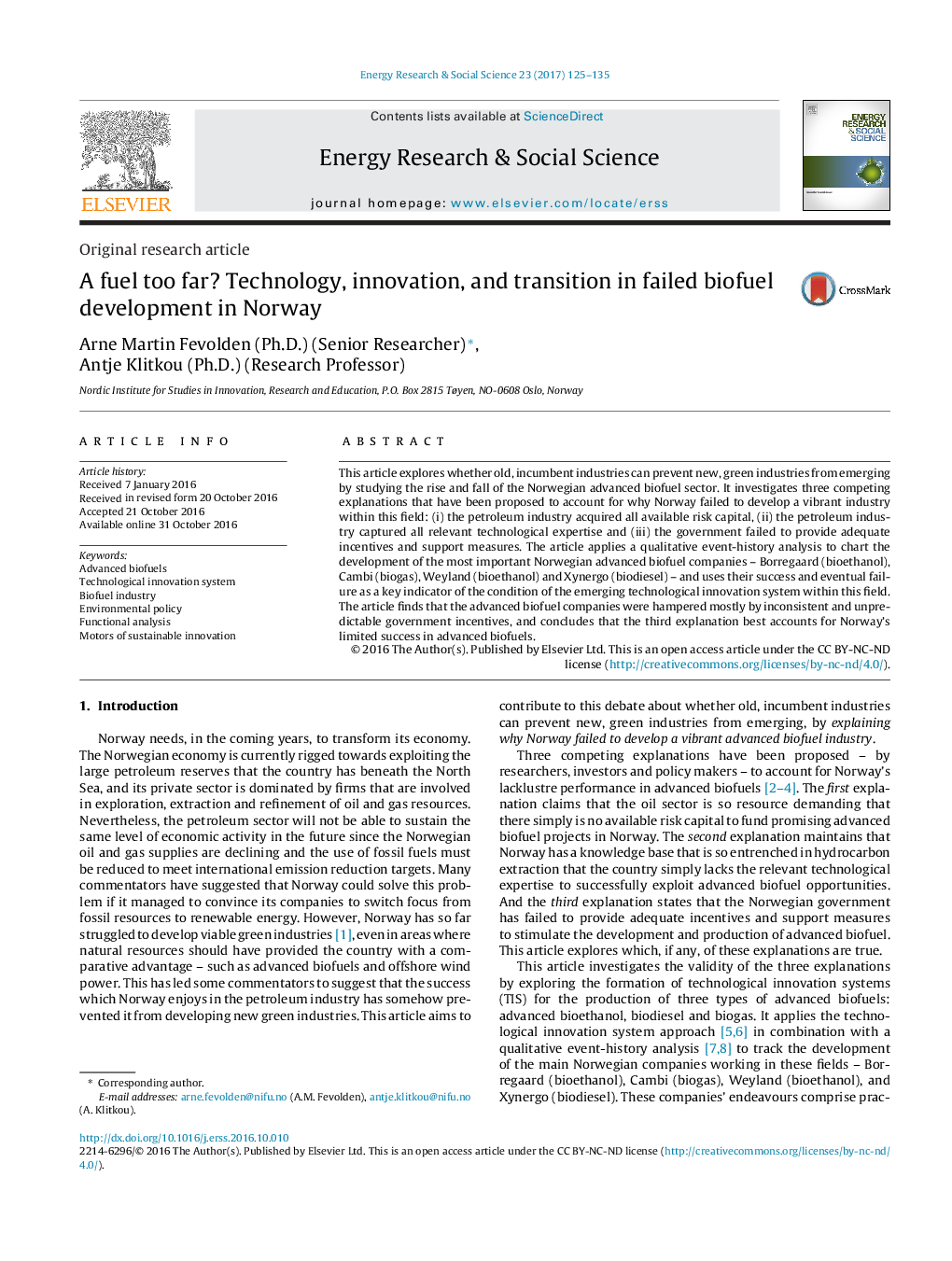| Article ID | Journal | Published Year | Pages | File Type |
|---|---|---|---|---|
| 6464095 | Energy Research & Social Science | 2017 | 11 Pages |
This article explores whether old, incumbent industries can prevent new, green industries from emerging by studying the rise and fall of the Norwegian advanced biofuel sector. It investigates three competing explanations that have been proposed to account for why Norway failed to develop a vibrant industry within this field: (i) the petroleum industry acquired all available risk capital, (ii) the petroleum industry captured all relevant technological expertise and (iii) the government failed to provide adequate incentives and support measures. The article applies a qualitative event-history analysis to chart the development of the most important Norwegian advanced biofuel companies - Borregaard (bioethanol), Cambi (biogas), Weyland (bioethanol) and Xynergo (biodiesel) - and uses their success and eventual failure as a key indicator of the condition of the emerging technological innovation system within this field. The article finds that the advanced biofuel companies were hampered mostly by inconsistent and unpredictable government incentives, and concludes that the third explanation best accounts for Norway's limited success in advanced biofuels.
